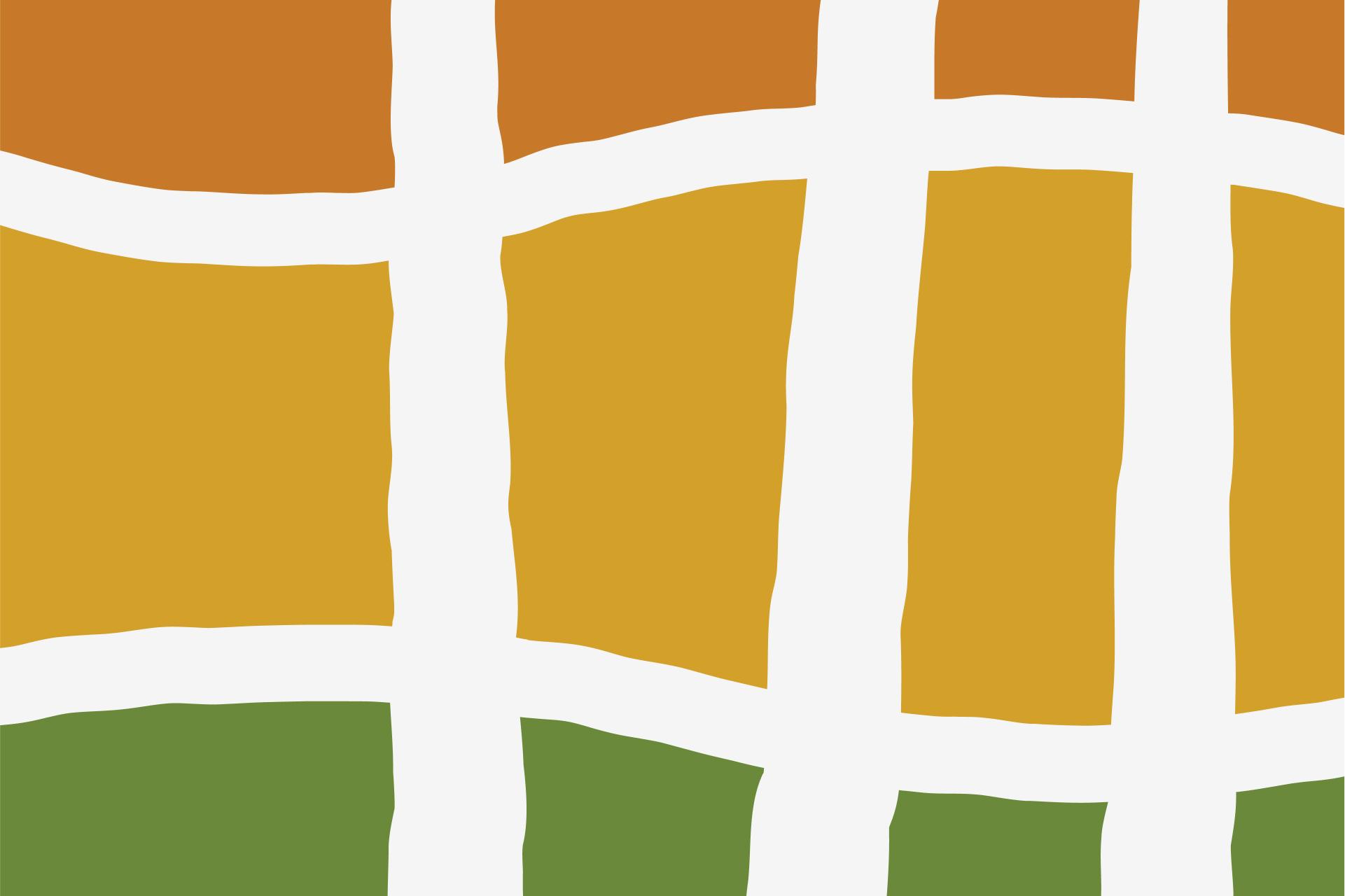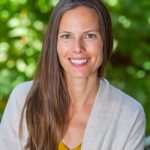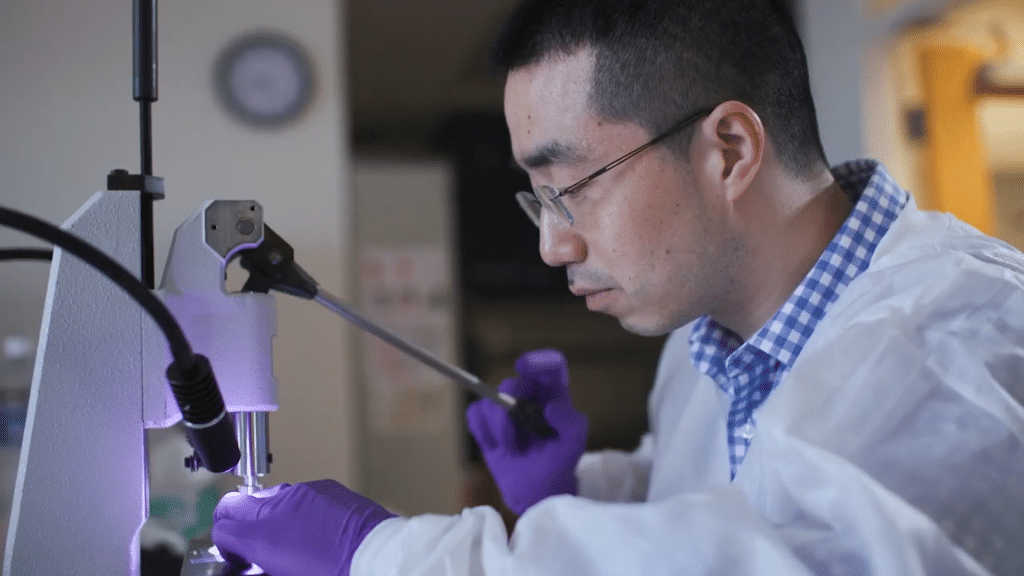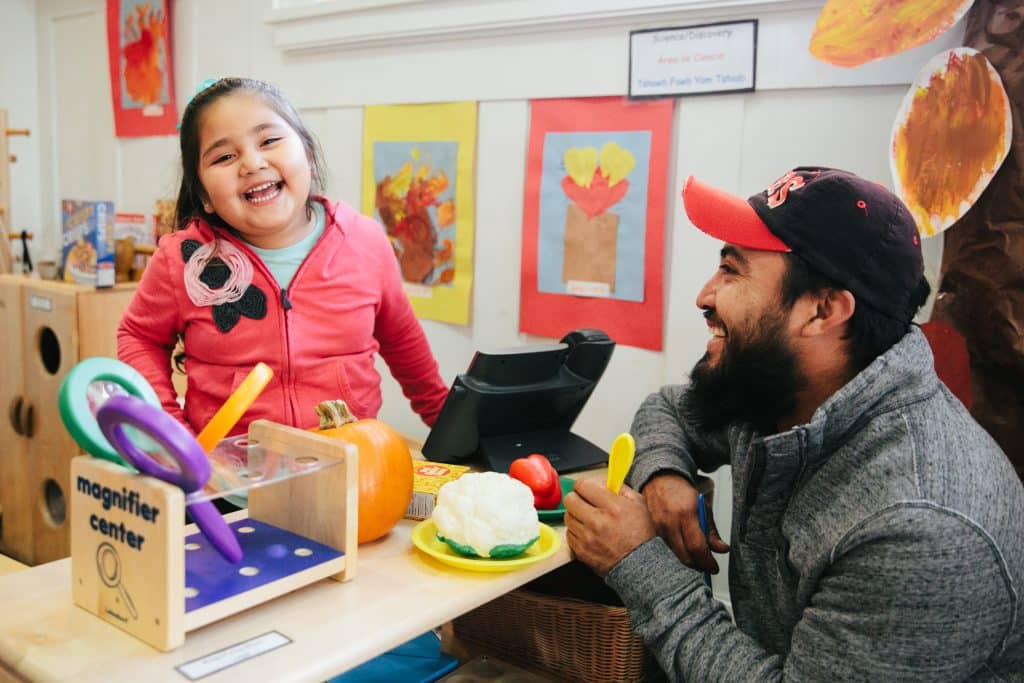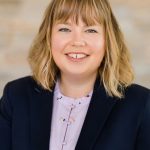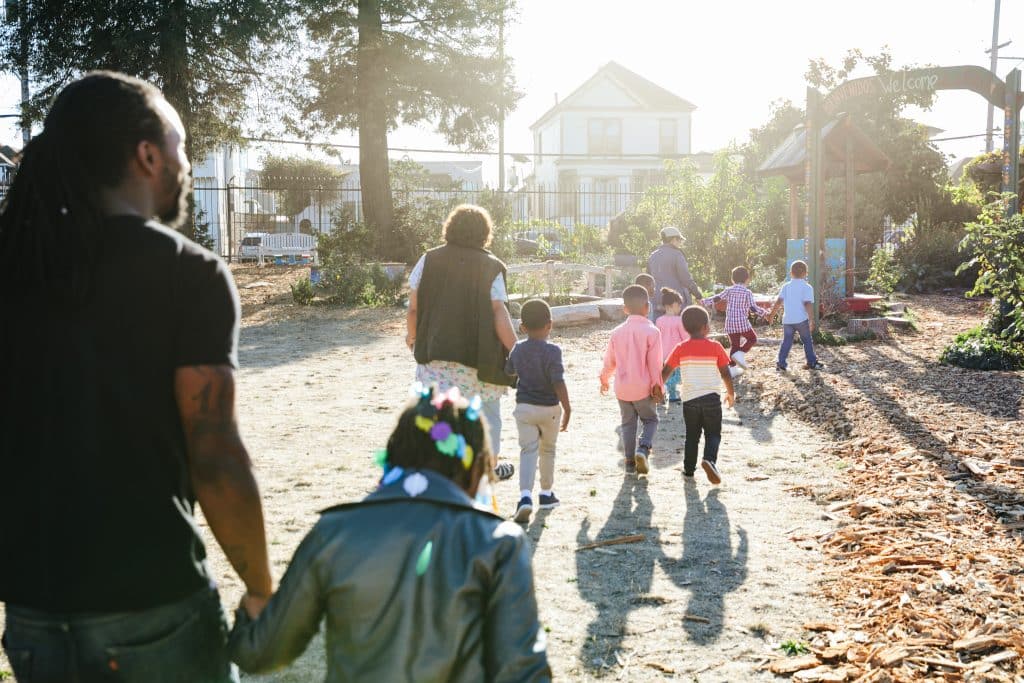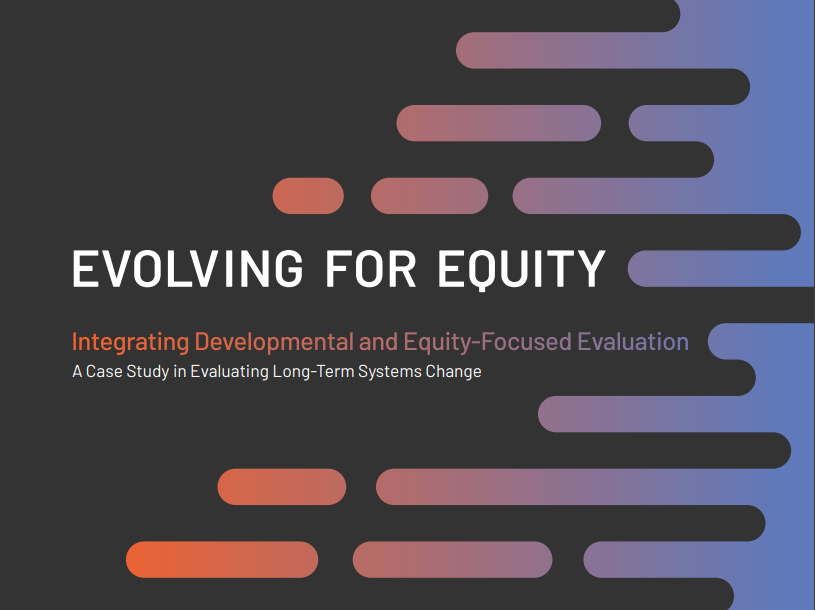A year ago, Gaby was struggling to find a safe, affordable, and accessible care provider that would prepare her son David for kindergarten. Today, David is thriving, and Gaby is feeling ever more confident in her ability to give her son the best start.
David is a student at the new Educare California at Silicon Valley, an early childhood institute that combines care for our youngest children, training for their teachers, and classes on child care for the community. He is benefitting from a research-backed, high-quality education, while his family, his teachers, and his community are learning more about how to help all children grow up safe, healthy and eager to learn.
A Growing Gap
Gaby’s full-time job didn’t cover the cost of sending David to a private preschool, and she couldn’t drive 30 minutes each way to pick him up and drop him off at the closest center with an opening. She and her neighbors in one of East San Jose’s poorest neighborhoods were struggling to find a quality option for their young kids.
Unfortunately, many children in California face challenges similar to David and his family. These children don’t have access to quality early education, and because of it, enter kindergarten unprepared. Half of California’s kids aren’t enrolled in preschool and are missing out on critical opportunities to build a strong foundation for a healthy childhood.
Some children—particularly those growing up in low-income families—are even more at risk of falling behind. In California, nearly one in six families with children under five are living below the poverty line. Disparities are especially great in places like the Franklin-McKinley School District in San Jose, where many families lack access to high-quality schools, instruction, and educators for young children. And to make matters worse, there are funding issues as well.
“In 2008, there was about a billion dollars worth of cuts [to early learning programs in California],” says Lisa Kaufman, Ph.D., Executive Director of Educare California. These state-level budget cuts make it even harder for families wanting to provide the best for their kids. And despite overwhelming support for investing in early education, financial support from the state has been slow to pick back up to pre-recession levels. “How do you send a message that early childhood education is important for our long-term wellbeing and economic health as a state?” asks Kaufman.
The community is coming together to create a better environment for its youngest learners.
Investing in a Model for Quality
The Packard Foundation recognized that in order for children to have access to high quality education, their communities need access to high quality educators. They saw that investing to improve the early childhood workforce would not only help to solve the challenges communities like Gaby’s faced, but would also demonstrate to decision makers throughout the state what quality early education looks like and why it’s so critical.
“We want to see what quality looks like, and share that with other educators,” explains early childhood education consultant Whit Hayslip. “It’s about transforming early learning from being dispensable, to showing why it’s indispensable for children.”
In San Jose, the Packard Foundation’s commitment to quality is taking the form of the first Educare school in California. The community is coming together to create a better environment for its youngest learners, and establish a novel testing and training ground for the community’s teachers.
A Mosaic of Partners for the Community
Partners from all over have come together, combining their resources to make the Educare school and training institute a reality. Foundations stand side by side with Silicon Valley leaders, corporate philanthropies, and public institutions, having raised more than $14 million for the construction of the school and training institute.
“For example, the Franklin McKinley school district is leasing the land; FIRST 5 Santa Clara and the Office of Education offered funds; the business community is supporting; not all your usual suspects,” explains Hayslip.
“The only way that we can be successful is through community partnerships,” says Kaufman. “We all want our kids to succeed…and this is an opportunity for everyone to come together to build a physical space where quality, safe learning can happen for kids, and the whole community both contributes to and benefits from it.”
It’s a living place of learning for the whole family, the moment you walk through the doors.
A Living Place of Learning
Educare welcomed David among its first cohort of 168 students in September 2015. When Gaby and David walked into the state-of-the-art school, they were greeted by more than just classrooms.
“It’s a living place of learning for the whole family, the moment you walk through the doors,” says Kaufman.
Amid bright colors and spaces to play, there is an arm of the San Jose Public Library and satellite exhibits of the Children’s Discovery Museum of San Jose. Community artists are setting up to perform a play for the kids. A family support specialist is welcoming a new student and her parents to the school, introducing the range of services available on-site.
“One of the things I like to highlight is the social equity piece,” says Kaufman. For example, “the museum partnership sends a message to our families: you don’t have to find transportation to get to the museum, because the museum comes to you.”
David isn’t the only one getting personalized learning and support: his mom has access to a Family Resource Center, and classes on prenatal care and parenting. She has also built a close relationship with David’s teacher, who will remain with him until he transfers to kindergarten.
To David’s teacher, Educare is more than just a school—it’s a teaching center for early learning. She is receiving training from Educare’s Professional Development Institute (PDI) on the latest evidence-based teaching methods. The vision for PDI is that educators across the community, beyond those who work at Educare, will be able to develop their skills through the Institute’s training and coaching.
“The [Family Engagement] training that I receive helps to set the tone of the importance of us as teachers to encourage family’s role as advocates for their children educational goals,” his teacher says.
Her colleagues are preparing to scale the successes of Educare by bringing quality education beyond the school’s walls and back to their own schools and classrooms. A local Career Academy is in development that will enable participating students to take coursework as they earn an Associate of Arts in Early Childhood Education alongside their high school diploma.
“Now, these kids and families have access to critical resources that they didn’t have before,” says Kaufman. “And the school is also an incubator to share knowledge with the rest of the school district about what is possible when communities come together.”
Educare’s presence demonstrates to the community and the state that its youngest learners deserve a safe, high-quality education.
A Beacon for Quality Early Learning
After David’s first year at Educare, Gaby is already taking more ownership of David’s education. In her words, “the program is making me a better parent. I feel more confident about how I can help David learn.” David’s teacher has worked with Gaby to identify ways to bring lessons home, such as techniques to help encourage David to practice reading skills he learned in the classroom.
“The building is a concrete symbol of early learning” and what it means to thoughtfully invest in our children, Kaufman says.
For the families of East San Jose, Educare’s presence demonstrates that its youngest learners deserve a safe, high-quality education in their neighborhood. For the rest of the state, the school is a model that shows the value of bringing a community together to better serve all its children and families.
For Gaby and David, Educare represents a better future for them both.
